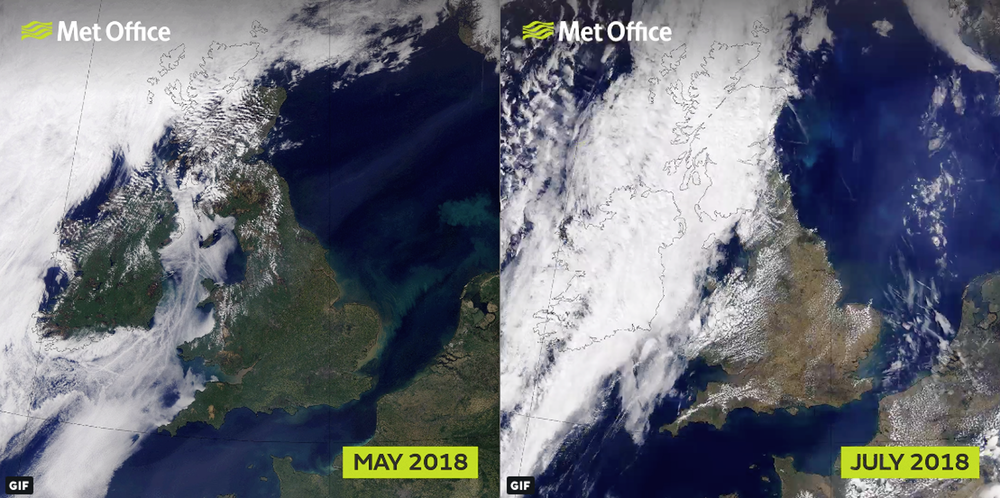Given recent floods in Yorkshire you might think that drought isn’t a worry for the UK – but even during extreme wet weather we must conserve water. So concluded the £12m Drought and Water Scarcity Research programme which wrapped up last month. Here we look at one of its Reading-led projects.

As the global climate changes, extreme weather events like heatwaves and drought are becoming more common. Here in the UK, and across the world, skilful forecasting of dry and drought conditions is critical for farming and to help us manage our precious water resources. Reservoirs and groundwater stores can quickly run low, even after floods, and drought researchers say that water needs to be consistently treated as a valuable resource all year round to prevent this.
The IMPETUS project, led by Professor Len Shaffrey from Reading’s National Centre for Atmospheric Science, was one part of the Drought and Water Scarcity Research programme. It aimed to improve weather, hydrological and water demand forecasts, bringing these factors together to pinpoint when and where droughts could occur.
Relevant information at the right time
The research brought together scientists from the meteorological, land surface, surface water and groundwater research communities and social scientists. The team also worked closely with water companies and government agencies to ensure that drought forecasts would be relevant to help them make decisions, and farmers and water companies to understand what they most needed when it comes to drought forecast information.
One of the project’s findings was that public water suppliers need to understand the regulatory context for drought management if they are to use drought forecasts. The work also showed that farmers are highly dependent on forecast skill and being told about relevant forecasts in time to be able to take action.
Advancing science
Working with the Met Office and the European Centre for Medium-range Weather Forecasting (ECMWF), the IMPETUS team also advanced drought forecasting science, increasing our understanding of the atmospheric and hydrological conditions that lead to droughts beginning, and the length of time for which they occur.
New methods to produce skilful regional forecasts of UK winter rainfall a whole season ahead were co-developed by the team. These results have been shared with the Met Office and ECMWF through a continuing series of workshops reviewing UK and European seasonal forecasts.
The rise and fall of rivers
IMPETUS research also contributed to improvement of the monthly Hydrological Outlook which gives an insight into future hydrological conditions across the UK, specifically on river flows and groundwater levels on a monthly basis.
During the 2017-2018 drought, researchers from the project provided advice on what we might expect in 2019-2020.
The Centre for Ecology and Hydrology’s Jamie Hannaford, who led the follow-on study based on methodology developed by IMPETUS, said: “Since the summer of 2018 we have worked with a very wide range of stakeholders, providing them with forecasts for the river catchments that are relevant and ensuring that they meet user needs. In last summer’s drought conditions when many stakeholders needed reliable information about what would happen next, they have told us that these forecasts were very useful.”
The forecasts have been provided to a wide range of users, including water companies, the Environment Agency, Natural Resources Wales, the Scottish Environmental Protection Agency, the National Farmers’ Union, energy industry and the Canal & River Trust.
On 7 November, the Royal Society hosted About Drought, an event to mark the culmination of a £12m five-year UK Drought and Water Scarcity Research Programme, which used cutting-edge data to analyse how strategic decision-making can be improved in the face of our changing climate. Representatives from government agencies, water companies and water regulators attended and the event was introduced by UKRI Chief Executive Sir Mark Walport. Find out more about the findings and impact of the project in the About Drought project summary booklet.
IMPETUS involved internationally-leading scientists and social scientists from three NERC Research Centres (the National Centre for Atmospheric Science (NCAS), the British Geological Survey (BGS) and the Centre for Ecology & Hydrology (CEH), four leading universities (Oxford, Reading, Newcastle, and Southampton), the Met Office and the ECMWF.
